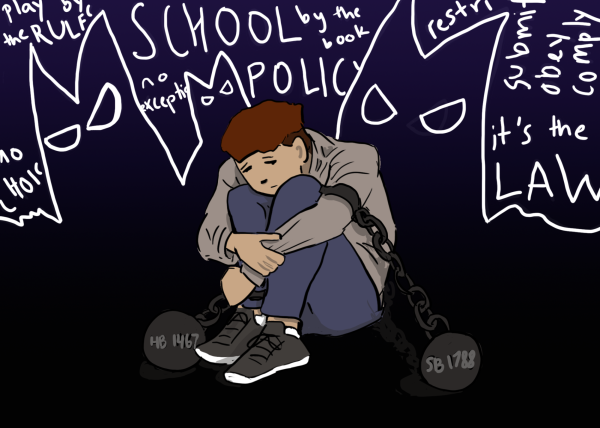Religious tolerance applies to all belief systems

photo by Andrew Wilson
Much of the hate against Christianity stems from the idea that all Christians are homophobic, anti-semetic, racist—the list goes on. Yes, fundamental Christians have been most commonly associated with attacks on the LGBTQ+ community, and that is not okay. But most Christians do not hold such bitter beliefs.
“Congress shall make no law respecting an establishment of religion, or prohibiting the free exercise thereof.”
Since its origin, the United States has emphasized the importance of religious freedom—it’s the first thing granted in the First Amendment. The country is a melting pot of different belief systems, and they are expected to coexist in peace. Even so, religious hate has as long as religion. Much of this hate is directed towards less prevalent religions in the U.S., like Islam and Judaism, but even the most prevalent religion in the United States, Christianity, is subject to this hate.
In the U.S., petty hatred against Christians has become popular on platforms like TikTok. Users often refer to God as “Sky Daddy,” calling Christianity the “Sky Daddy fan club.” At first glance, it seems harmless, but it shines a light on a double standard. Calling Allah “Sky Daddy” would be seen as disgusting—rightfully so—and any other religion’s holy figures should be treated with the same sensitivity.
Much of the hate against Christianity stems from the idea that all Christians are homophobic, anti-semetic, racist—the list goes on. Yes, fundamental Christians have been most commonly associated with attacks on the LGBTQ+ community, and that is not okay. But most Christians do not hold such bitter beliefs. Society has come a long way in terms of inclusivity, and that includes many Christians. It’s important to recognize that Christianity and most other religions are rooted in the idea of love and acceptance, not judgment towards others. Just because a few Christians are hateful does not mean that they all are, and assuming so is ignorant.
Recently, Ye gained media attention for his anti-semetic remarks on his Twitter and in interviews. One of the many things he said was that Jews are only concerned about profits: “I just think that’s what they’re about, is making money.” When this happened, many turned to the internet saying that it’s repulsive for such a high-profile figure to spread offensive ideas. Still, some small groups supported his antics, spreading the idea that “Ye was right.” The bottom line: he wasn’t. He caused damage to an entire community based on a centuries-old stereotype, and his only consequence was losing a few brand deals.
Hateful speech, like Ye’s, is not acceptable toward any religion. What’s the moral difference between the internet agreeing with Ye and others calling Christians bigots? Both are untrue and harmful. Instead of putting entire groups of people down based on preconceived notions, we should focus on ending stereotypes and taking the time to learn about individuals and what they believe. Just as we should not hate on others for their heritage and traditions, we should not ostracize those who practice religion, including Christians.
No, Christians are not oppressed in America. No, Christians do not have it as bad as other religions. But this does not make hating on them okay. Not all Jews are materialistic. Not all Muslims are terrorists. Spreading these false narratives only increases the existing hate and tension in society that most “tolerant” people beg to get rid of. We must continue to expand on the progress we’ve made towards inclusivity and love—not shut others down for their beliefs.
Your donation will support the student journalists of Hagerty High School. Your contribution helps us publish six issues of the BluePrint and cover our annual website hosting costs. Thank you so much!






